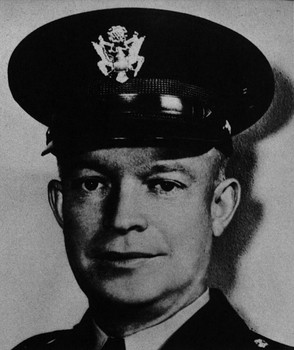Reply
Sun 6 May, 2012 02:35 am
Context:
In short, the Nixon fund was a big story because Eisenhower, by his silence and hints and uneasiness, made it one. For no other reason.
It was natural for Eisenhower to acquiesce in a staff decision to drop Nixon. That staff had presented him with Nixon in the first place. (Ike 's knowledge of his running mate was very slim - he thought, for instance, he was forty-two rather than thirty-nine.) The General had, in fact, learned of Nixon's choice at exactly the same time Nixon did. When Herb Brownell asked Ike what he thought of Nixon, the presidential nominee expressed surprise that the decision was his to make. He said he would leave the matter to Brownell, provided the latter consulted "the collective judgment of the leaders of the party" (the top man, in military politics, protects himself by putting a subordinate in charge of the operation, under staff scrutiny). So Brownell called a meeting of the party's leaders, and went through the form of considering Taft and others.
"Eisenhower" is General Dwight D Eisenhower, commander of the US and Allied forces in Europe from D-Day to victory over Germany, who entered politics after the war and was President of the United States from 1952 to 1960. Nixon was his running mate (vice presidential candidate) in the 1952 presidential election, and subsequently vice President. He was widely known by his nickname "Ike". Most Western readers aged 50 or more will immediately recognise who "The General" is, given that Eisenhower's name is mentioned along with Nixon's.

@contrex,
contrex wrote:
"Eisenhower" is General Dwight D Eisenhower, commander of the US and Allied forces in Europe from D-Day to victory over Germany, who entered politics after the war and was President of the United States from 1952 to 1960. Nixon was his running mate (vice presidential candidate) in the 1952 presidential election, and subsequently vice President. He was widely known by his nickname "Ike". Most Western readers aged 50 or more will immediately recognise who "The General" is, given that Eisenhower's name is mentioned along with Nixon's.

Excellent!
Why not used the lower case but the capital one? The general vs. The General. We know that usually God deserves the capital form all along.
@oristarA,
oristarA wrote: Why not used the lower case but the capital one? The general vs. The General. We know that usually God deserves the capital form all along.
This is a matter of style rather than of rules. The Wikipedia capitalization style guidance is typical:
Offices, positions, and job titles such as president, king, emperor, pope, bishop, abbot, executive director are common nouns and therefore should be in lower case when used generically:
Mitterrand was the French president
There were many presidents at the meeting.
They are capitalized only in the following cases:
When followed by a person's name, when they can be considered to have become part of the name: President Nixon, not president Nixon
When a very high ranking office is used to refer to a specific and obvious person as a substitute for their name, e.g. the Queen, not the queen, referring to Elizabeth II (this is why he is "the General")
When the correct formal name of an office is treated as a proper noun e.g. King of France it is correct to write Louis XVI was King of France but Louis XVI was the French king
http://en.wikipedia.org/wiki/Wikipedia:Manual_of_Style/Capital_letters
@oristarA,
Quote: Why not used the lower case (instead of) the capital one?
You were not using "but" correctly in the phrase.
The "General" was, in this case, a proper noun in that it referred to a specific general , Eisenhower. So there was a sort of loose rule in last century newspaper writing that said that, the title, when referring to a specific person, is capitalized. You will see this in press lines (although its not popularly used today , I did see that in the Philly Inquirer , when reporting on Diocesan leadership ofte capita;lized the word "CArdinal" when used alone whenever they referred to past Cardinal Bevaloqua)
@farmerman,
"loose rules", "house styles", my good dog, what has become of the English language. Where is Om demanding that all these folks follow "logic"? Surely this points to the imminent demise of the English language. Better practice putting more meaning in your grunts, folks.